“Horses don’t make demands, they just want to be.”
― Andrea Kutsch, From the Horse’s Point of View: Beyond Natural Horsemanship: Horse Training’s New Frontier
I recently finished From the Horse’s Point of View by Andrea Kutsch. I’ve grown up living behind kind horsemanship, and I still need reminders and tips to continue that mindset. My first inspiration was Monty Roberts, and another of my favorite trainers is Tik Maynard.
I picked up From the Horse’s Point of View recently as a way to bolster my hunger for knowledge. Evidence-Based Equine Communication? Sign me up. I’m a science geek and I live for science-based learning.
Get your Copy Here: Trafalgar Square Books
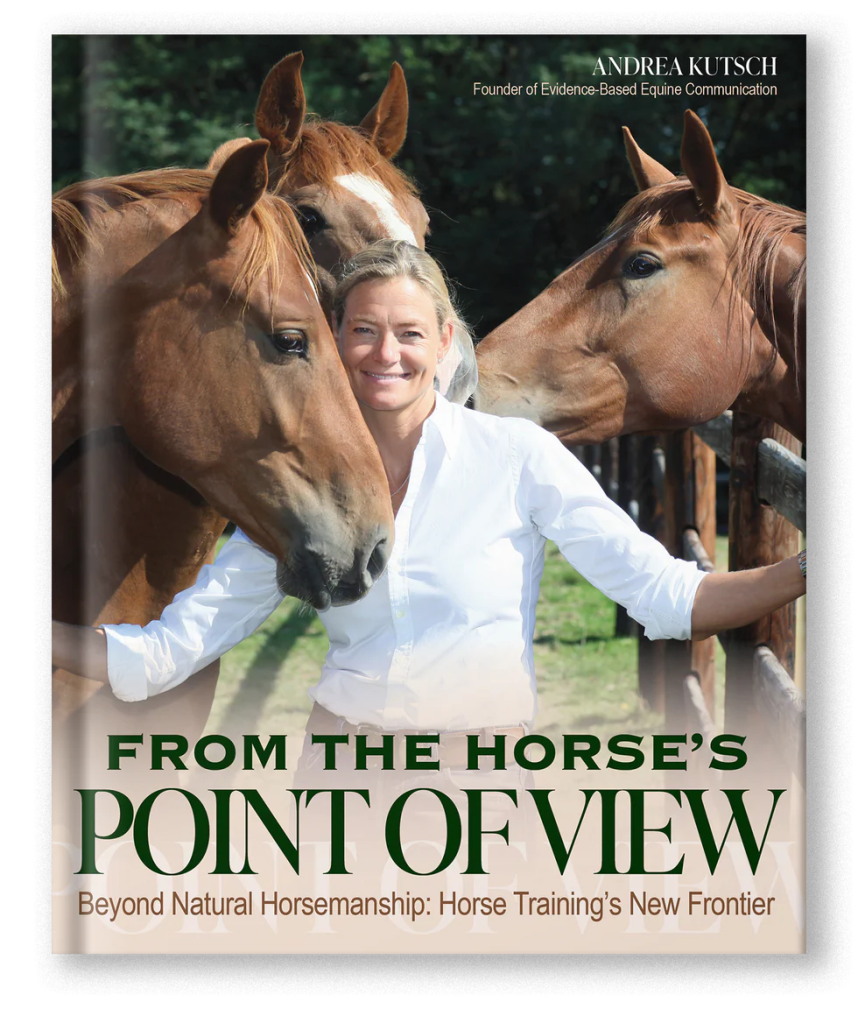
Andrea begins by explaining her experience with horses. It’s not terribly dissimilar to my own. I loved watching the horses near my home. She enjoyed some Icelandic horses. As she got into horseback riding and the horse world her trainers and mentors taught her behaviors that led to inner conflict. Yelling at or disciplining horses for certain behaviors. For years she accepted it and didn’t know anything else.
Andrea came to a point where she needed something different. She was playing polo and struggling with her mare, Sundance. Nothing seemed to help the mare settle to the sound of the ball being hit. She pursued “horse whispering.” She was quite successful at it, and she trained horses for audiences of up to 20,000 people. Despite all this success and the gentler training methods Andrea still questioned why horses would get stressed and anxious. She wanted to dig deeper to get to the root of these issues.
I learned something when I was left unable to touch her for two weeks after Argentinian grooms had used their “educational measures” or her behind closed doors. And when I think back to a vet recommending that I sedate the mare before a game so she couldn’t run as fast and I could get a chance to hit the ball, my blood still runs cold.”
― Andrea Kutsch, From the Horse’s Point of View: Beyond Natural Horsemanship: Horse Training’s New Frontier
Andrea assembled a team of experts; in roughly 5 years Andrea and her team of over 40 professors and experts studied over 7000 horses to develop the Andrea Kutsch Academy (AKA). AKA is recognized as a state college and continues to partner with other universities to develop and enhance its latest research.
Andrea teaches us about the history and evolution of horse training. Dominance from a human perspective… goes back to when horses were truly broken in spirit, tied with ropes, and forced to do what human wants them to do. Conditioning from a predator’s perspective brings classical conditioning and clicker training into view. What Andrea finds is these methods don’t always work.
Next in the training evolution is Nonverbal from a human perspective. Horse whispering. Nonviolent training methods. This is the “natural horsemanship” or pressure and release based on observation of the horse’s natural language. Andrea noticed that this still did not work for every horse. She knew there was room for improvement so that led her to stage 4.
“The more popular this training became, the more clearly I was able to see that we were working on the symptoms of problems, not the causes.”
― Andrea Kutsch, From the Horse’s Point of View: Beyond Natural Horsemanship: Horse Training’s New Frontier
Stage 4 is Andrea’s work: Evidence-Based Equine Communication. EBEC takes into consideration the way a horse thinks and perceives the world while using scientifically proven evidence and learning theories. Andrea often refers to the EBEC Pyramid which consists of 5 levels…starting at the foundation:
- Basic physiological and psychological needs
- Interspecies communication
- Learning Theories
- Training Skills: Clear objectives and Focus
- Fulfilling Potential through Self-Reflection
Final Word:
I am on a lifelong pursuit of communicating with horses in a kind clear way. It doesn’t always happen, but I actively work towards this goal. As a scientist I am drawn to Evidence Based Equine Communication. I wanted to love every word in this book, and I do…but I was left wanting.
Andrea used few examples and case studies in this book. I wanted more. She spoke about a barn sour horse. I wanted to see EBEC used in more advanced settings….to show us what’s possible. I want to see case studies where EBEC and equine sports can co-exist. I want a clearer path to explore EBEC and apply it at home. Because of the lack of case studies and pathways I was left with the feeling of advertising. Unfortunately, I am not in the position to join the EBEC university, but it felt that it was my only next step to learn more. My hope is that this introduction to EBEC will be followed up soon with another book to answer more of my questions. I hope this is a”Part 1.”
Our world is hungry for EBEC, and thanks to Andrea Kutsch’s From the Horse’s Point of View I know more. I’m excited to see what’s possible and to explore this more.
“When we first get involved in horses as a career or as a hobby, we should make very sure that we always keep this empathy and love for horses in our heart.”
― Andrea Kutsch, From the Horse’s Point of View: Beyond Natural Horsemanship: Horse Training’s New Frontier
I also want to add that I buy most of my horse books from Trafalgar Square Books. I’m excited to say that I am an affiliate with the publisher, and so proud to be. Trafalgar Square embodies the spirit of horse people….they ARE horse people. The operation is based in an old barn in Vermont and run by only a few people…people you can talk to and meet in person at events. It’s not a big corporate conglomerate, and for that I am grateful. This happens to be one of such books. You can find your copy through my affiliate link here, it’ll let TSB know I sent you!
From The Horse’s Point of View by Andrea Kutch

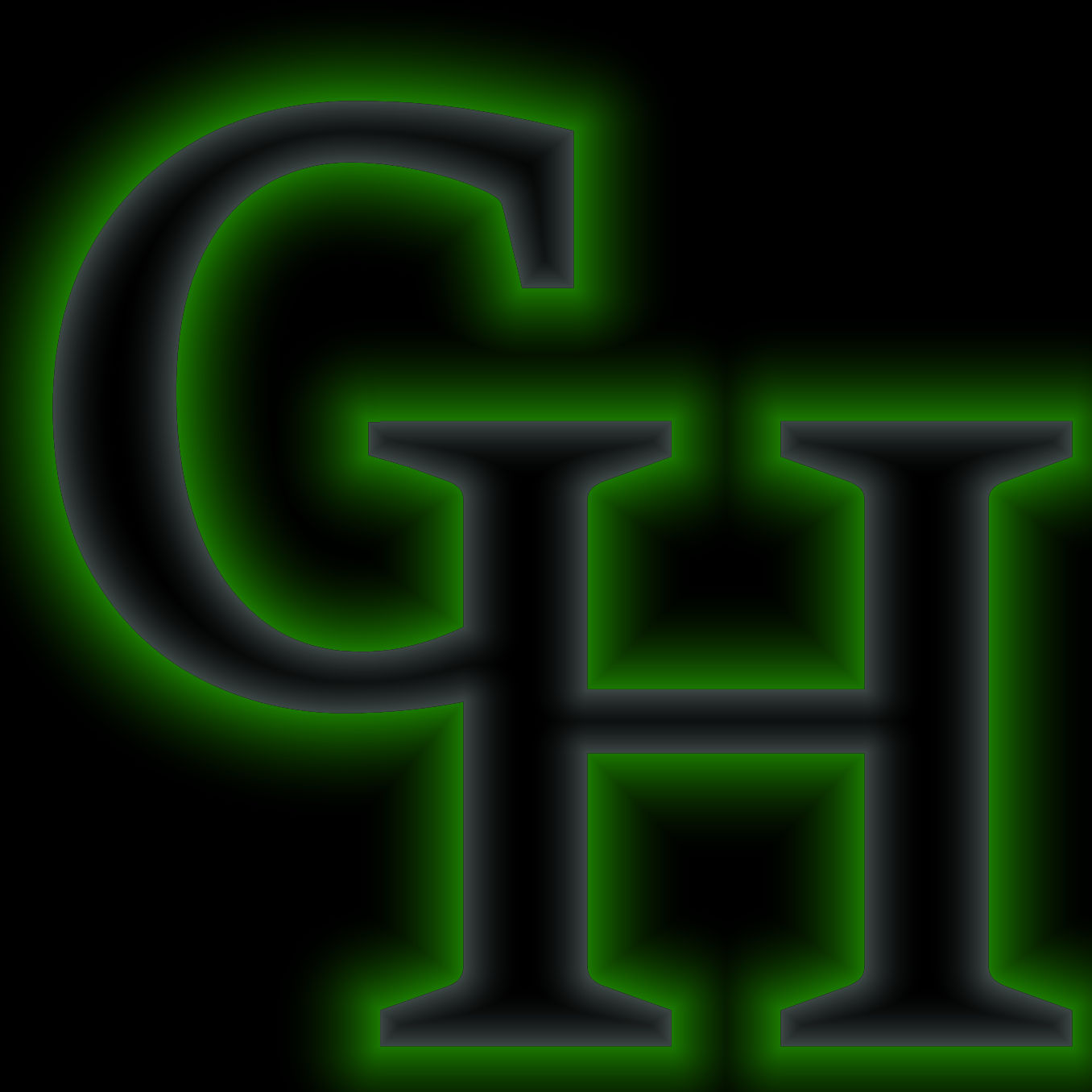
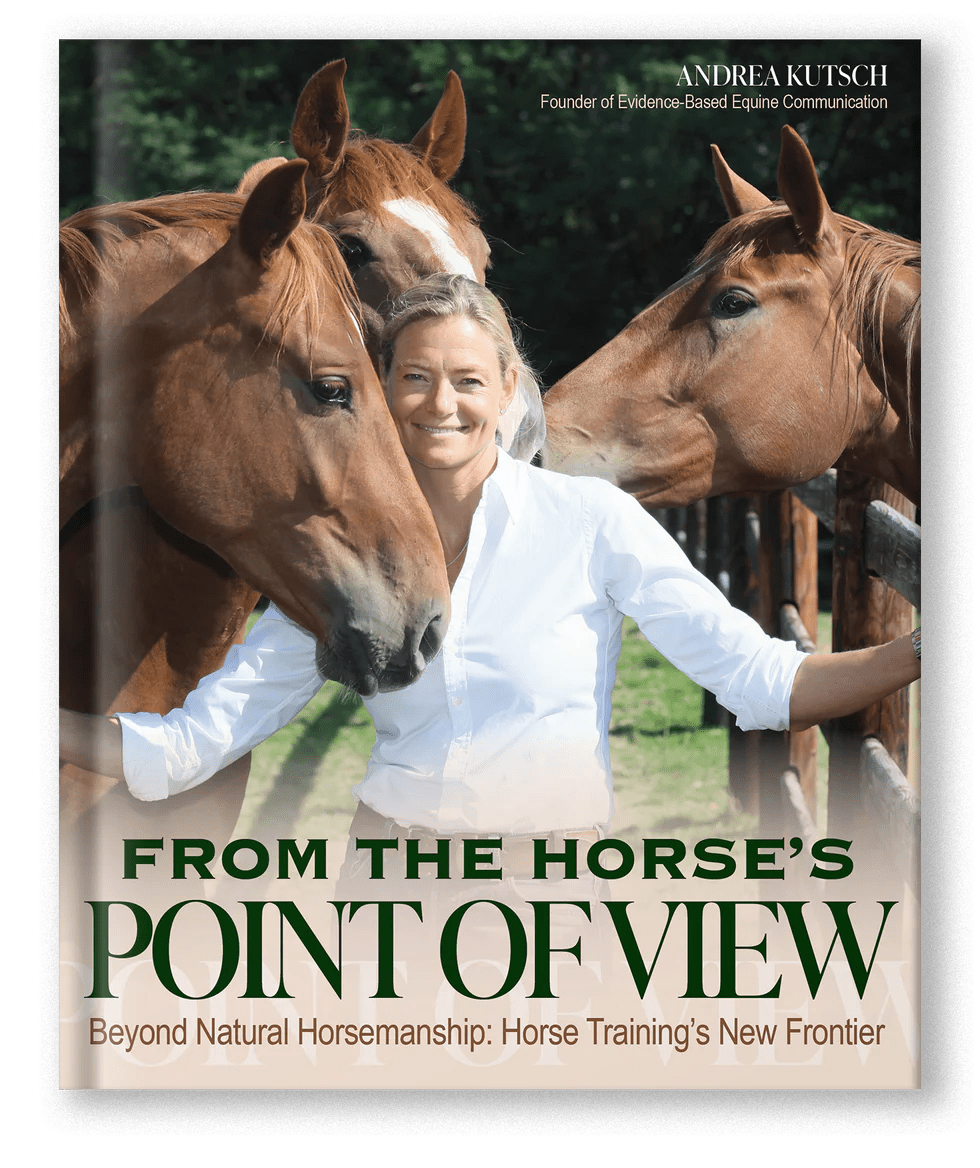


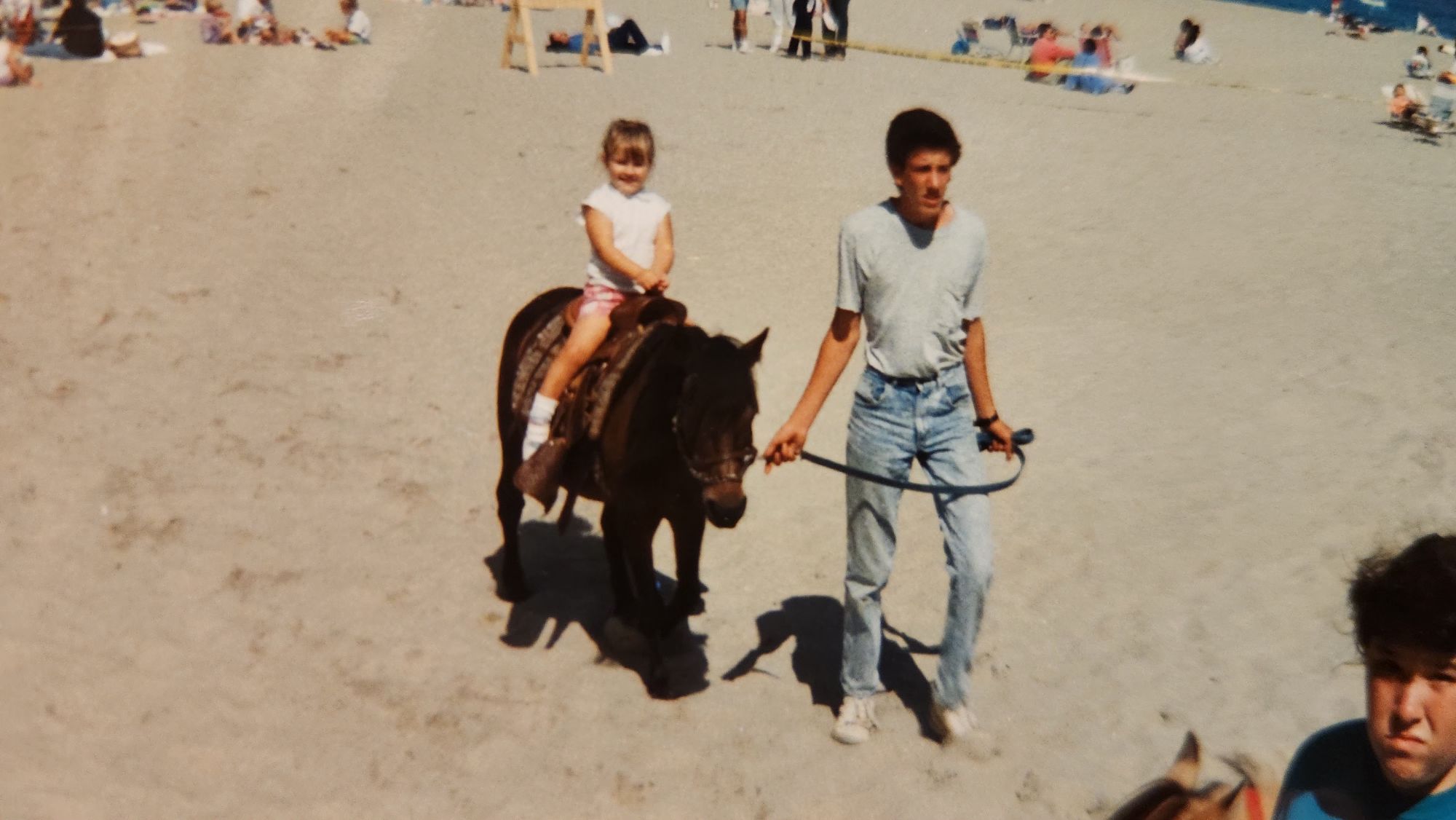
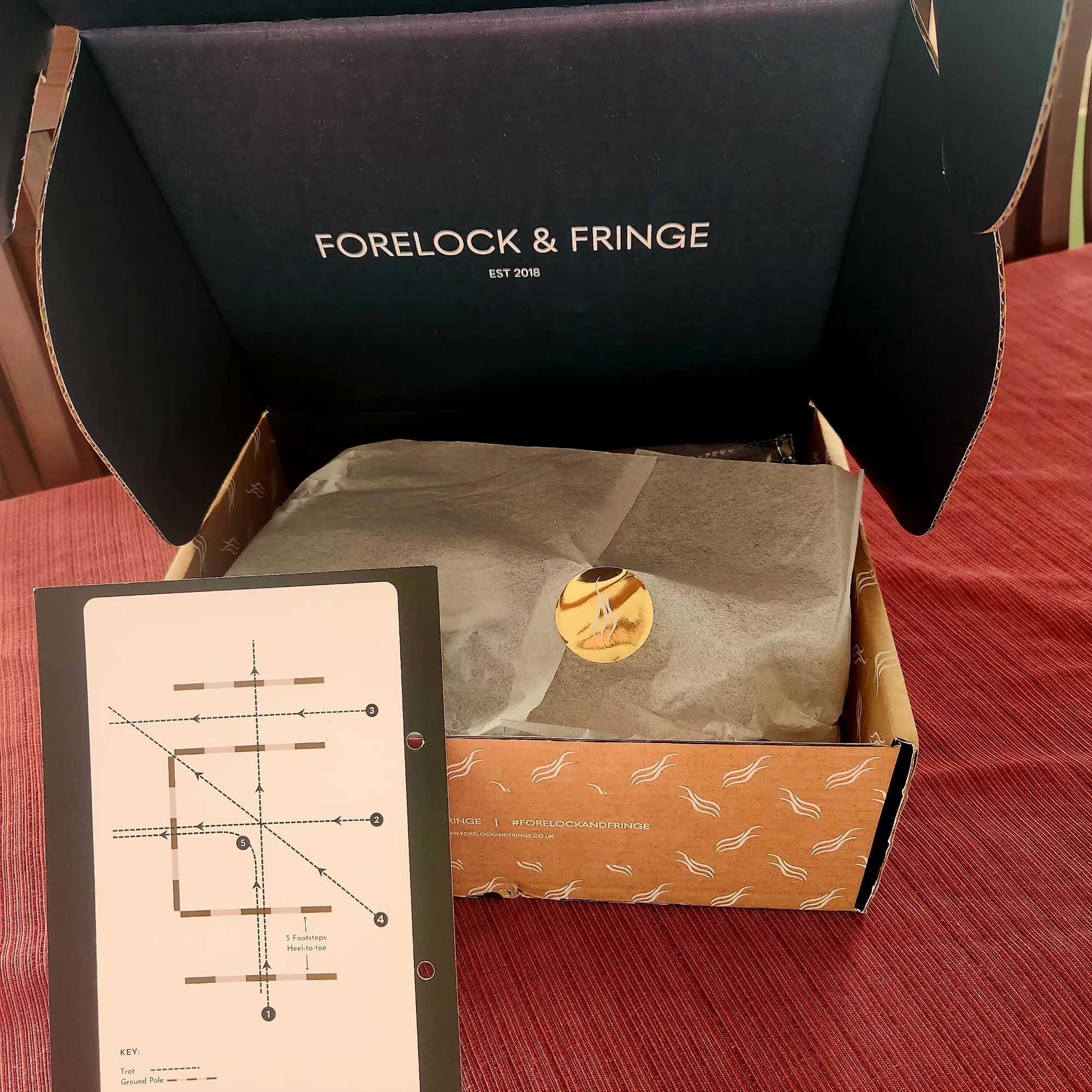
Leave a comment